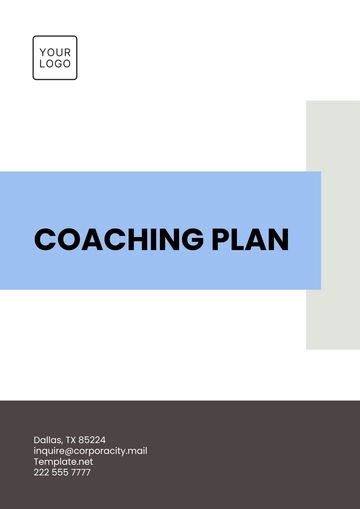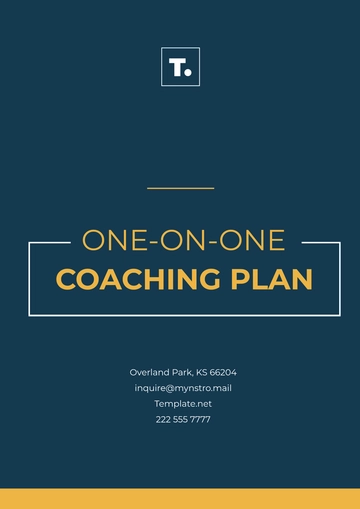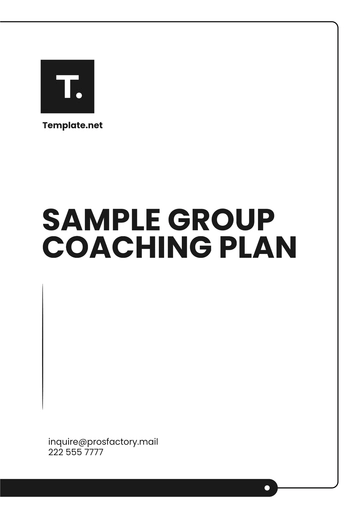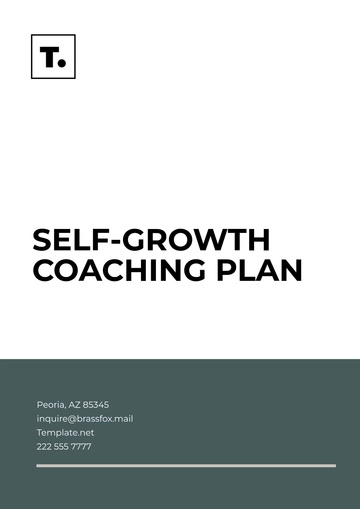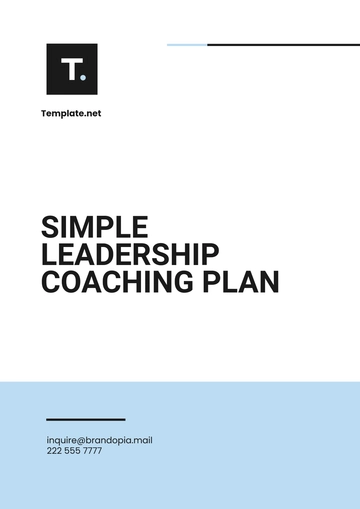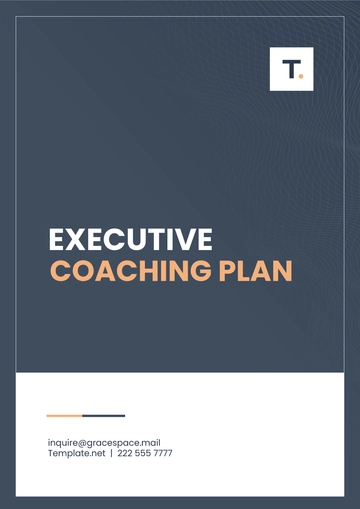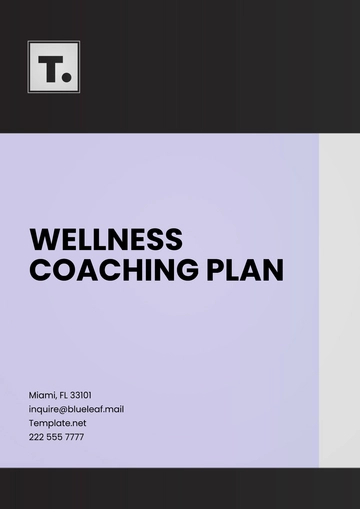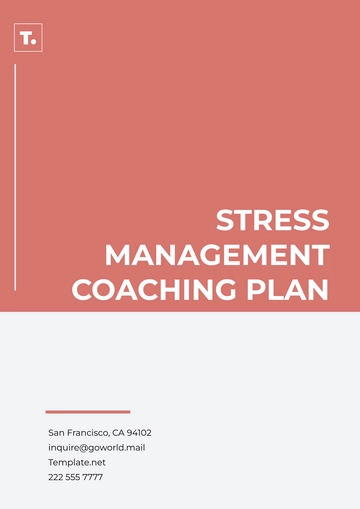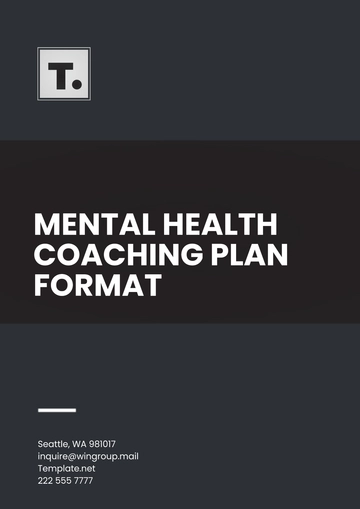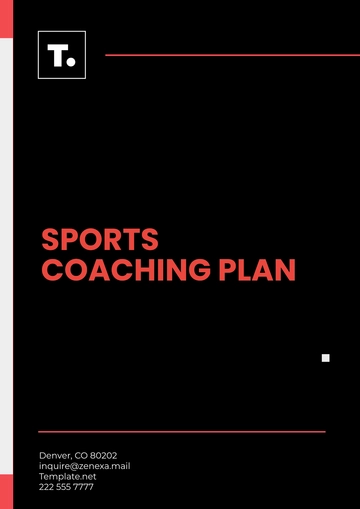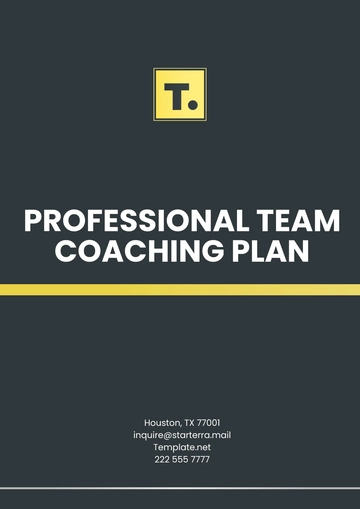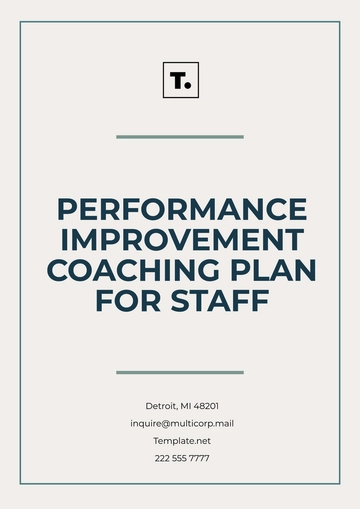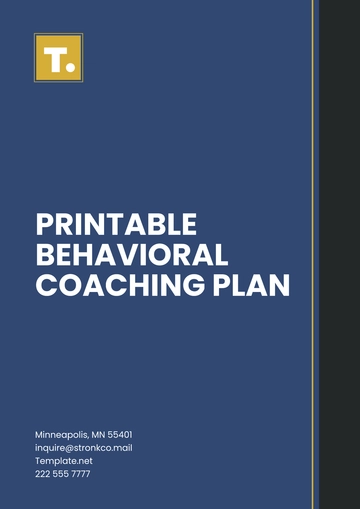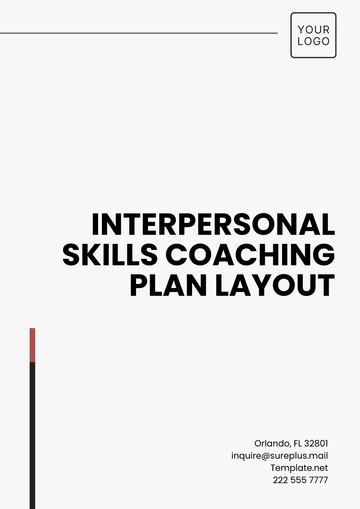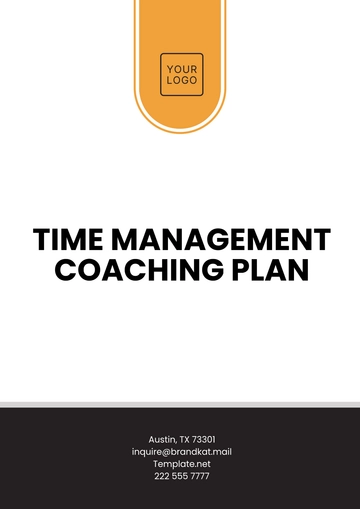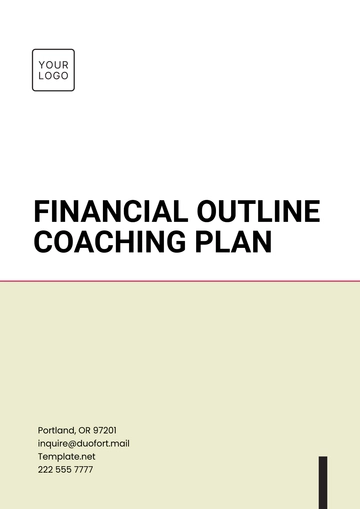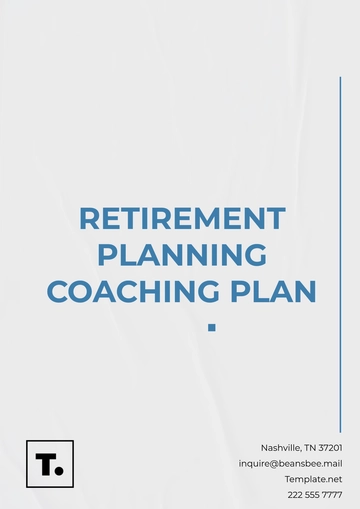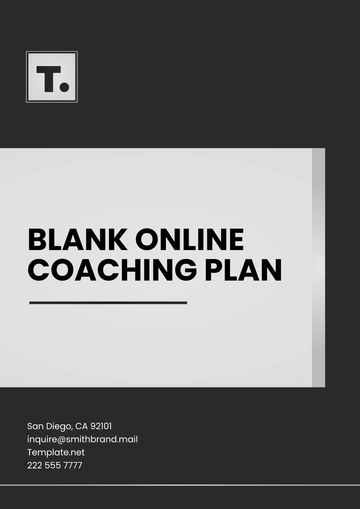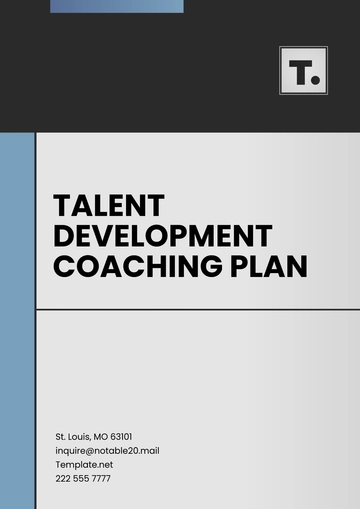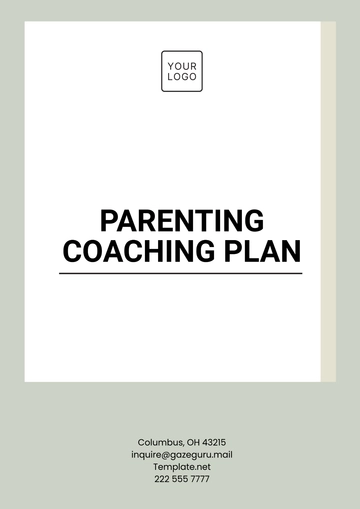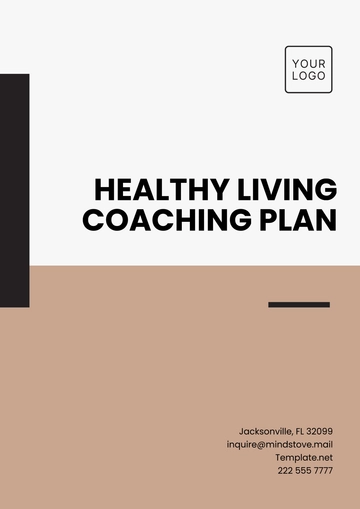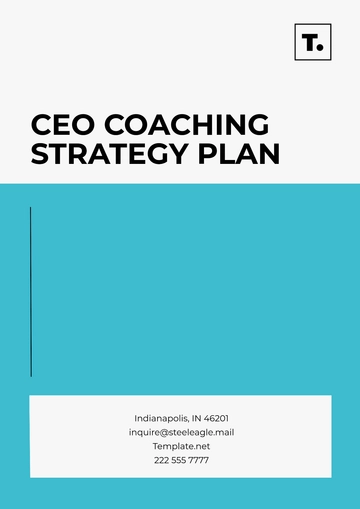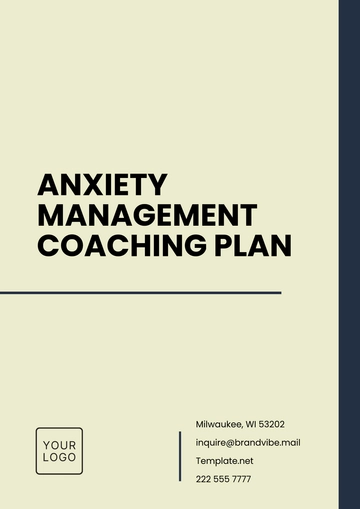Free Mental Health Coaching Plan Format
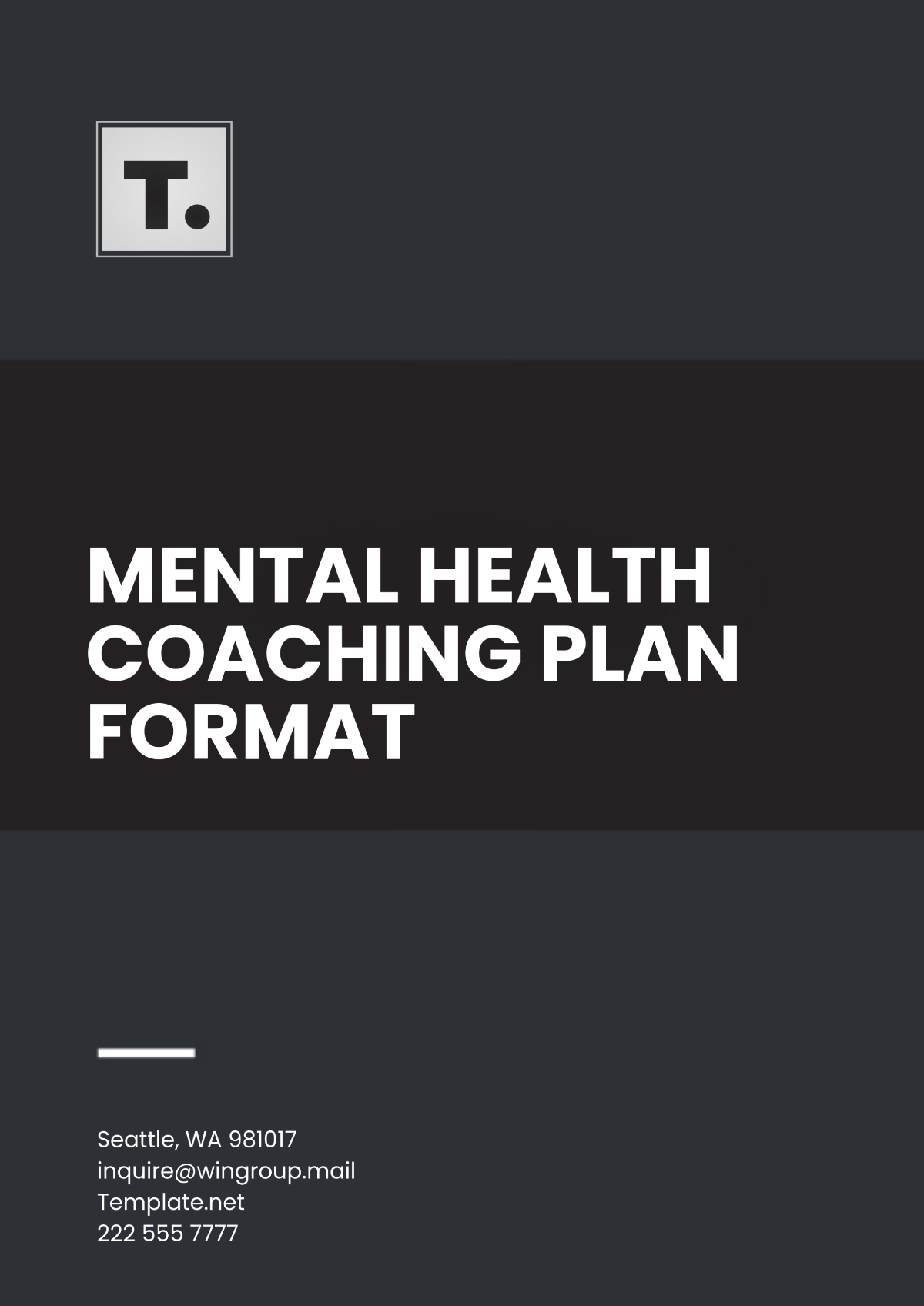
Prepared by: [Your Name]
Date: [Date]
I. Client Background
Personal History: Overview of the client's mental health history, including any diagnoses, treatments, or challenges.
Current Situation: A description of the client's current emotional, psychological, and behavioral state.
Strengths and Resources: Key strengths the client can draw upon during the coaching process.
II. Goals
Short-Term Goals: Specific, measurable objectives the client aims to achieve shortly (e.g., managing stress, improving communication).
Long-Term Goals: Broader, more comprehensive objectives for the client's mental well-being over an extended period (e.g., developing resilience, achieving emotional stability).
III. Action Plan
Interventions and Techniques: Specific coaching methods, therapies, or strategies to be used (e.g., mindfulness exercises, cognitive-behavioral techniques).
Client's Responsibilities: Tasks the client needs to complete between sessions (e.g., journaling, practicing coping strategies).
Professional Support: Additional support or referrals the coach may provide (e.g., therapist referrals, support groups).
IV. Timeline
Short-Term Timeline: Expected timeframes for achieving immediate goals (e.g., 1-3 months).
Long-Term Timeline: Projections for achieving long-term goals (e.g., 6-12 months).
Check-In Dates: Scheduled times to review progress and adjust the plan as necessary.
V. Progress Tracking
Regular Check-Ins: Frequency of sessions (e.g., weekly, bi-weekly) to track progress.
Metrics for Success: Clear indicators for measuring progress (e.g., mood tracking, stress levels, coping skills assessment).
Adjustments: Plans for modifying the coaching approach if goals are not being met.
VI. Evaluation
Success Criteria: How the achievement of goals will be evaluated (e.g., client feedback, observable behavioral changes).
Review and Reflection: A process for reflecting on progress and setbacks at the end of the coaching period.
Next Steps: Recommendations for continuing mental health maintenance or additional support after the coaching plan ends.
VII. Support Resources
External Resources: Information on support groups, online tools, or mental health professionals that may help the client.
Emergency Contact Information: Contacts for urgent mental health needs, such as crisis hotlines or emergency services.
- 100% Customizable, free editor
- Access 1 Million+ Templates, photo’s & graphics
- Download or share as a template
- Click and replace photos, graphics, text, backgrounds
- Resize, crop, AI write & more
- Access advanced editor
Support mental wellness with the Mental Health Coaching Plan Format Template from Template.net. This editable and customizable plan helps coaches develop personalized mental health programs that address specific emotional needs. With the Ai Editor Tool, you can make real-time edits to adjust the plan for different challenges like anxiety, depression, or burnout.
You may also like
- Finance Plan
- Construction Plan
- Sales Plan
- Development Plan
- Career Plan
- Budget Plan
- HR Plan
- Education Plan
- Transition Plan
- Work Plan
- Training Plan
- Communication Plan
- Operation Plan
- Health And Safety Plan
- Strategy Plan
- Professional Development Plan
- Advertising Plan
- Risk Management Plan
- Restaurant Plan
- School Plan
- Nursing Home Patient Care Plan
- Nursing Care Plan
- Plan Event
- Startup Plan
- Social Media Plan
- Staffing Plan
- Annual Plan
- Content Plan
- Payment Plan
- Implementation Plan
- Hotel Plan
- Workout Plan
- Accounting Plan
- Campaign Plan
- Essay Plan
- 30 60 90 Day Plan
- Research Plan
- Recruitment Plan
- 90 Day Plan
- Quarterly Plan
- Emergency Plan
- 5 Year Plan
- Gym Plan
- Personal Plan
- IT and Software Plan
- Treatment Plan
- Real Estate Plan
- Law Firm Plan
- Healthcare Plan
- Improvement Plan
- Media Plan
- 5 Year Business Plan
- Learning Plan
- Marketing Campaign Plan
- Travel Agency Plan
- Cleaning Services Plan
- Interior Design Plan
- Performance Plan
- PR Plan
- Birth Plan
- Life Plan
- SEO Plan
- Disaster Recovery Plan
- Continuity Plan
- Launch Plan
- Legal Plan
- Behavior Plan
- Performance Improvement Plan
- Salon Plan
- Security Plan
- Security Management Plan
- Employee Development Plan
- Quality Plan
- Service Improvement Plan
- Growth Plan
- Incident Response Plan
- Basketball Plan
- Emergency Action Plan
- Product Launch Plan
- Spa Plan
- Employee Training Plan
- Data Analysis Plan
- Employee Action Plan
- Territory Plan
- Audit Plan
- Classroom Plan
- Activity Plan
- Parenting Plan
- Care Plan
- Project Execution Plan
- Exercise Plan
- Internship Plan
- Software Development Plan
- Continuous Improvement Plan
- Leave Plan
- 90 Day Sales Plan
- Advertising Agency Plan
- Employee Transition Plan
- Smart Action Plan
- Workplace Safety Plan
- Behavior Change Plan
- Contingency Plan
- Continuity of Operations Plan
- Health Plan
- Quality Control Plan
- Self Plan
- Sports Development Plan
- Change Management Plan
- Ecommerce Plan
- Personal Financial Plan
- Process Improvement Plan
- 30-60-90 Day Sales Plan
- Crisis Management Plan
- Engagement Plan
- Execution Plan
- Pandemic Plan
- Quality Assurance Plan
- Service Continuity Plan
- Agile Project Plan
- Fundraising Plan
- Job Transition Plan
- Asset Maintenance Plan
- Maintenance Plan
- Software Test Plan
- Staff Training and Development Plan
- 3 Year Plan
- Brand Activation Plan
- Release Plan
- Resource Plan
- Risk Mitigation Plan
- Teacher Plan
- 30 60 90 Day Plan for New Manager
- Food Safety Plan
- Food Truck Plan
- Hiring Plan
- Quality Management Plan
- Wellness Plan
- Behavior Intervention Plan
- Bonus Plan
- Investment Plan
- Maternity Leave Plan
- Pandemic Response Plan
- Succession Planning
- Coaching Plan
- Configuration Management Plan
- Remote Work Plan
- Self Care Plan
- Teaching Plan
- 100-Day Plan
- HACCP Plan
- Student Plan
- Sustainability Plan
- 30 60 90 Day Plan for Interview
- Access Plan
- Site Specific Safety Plan
